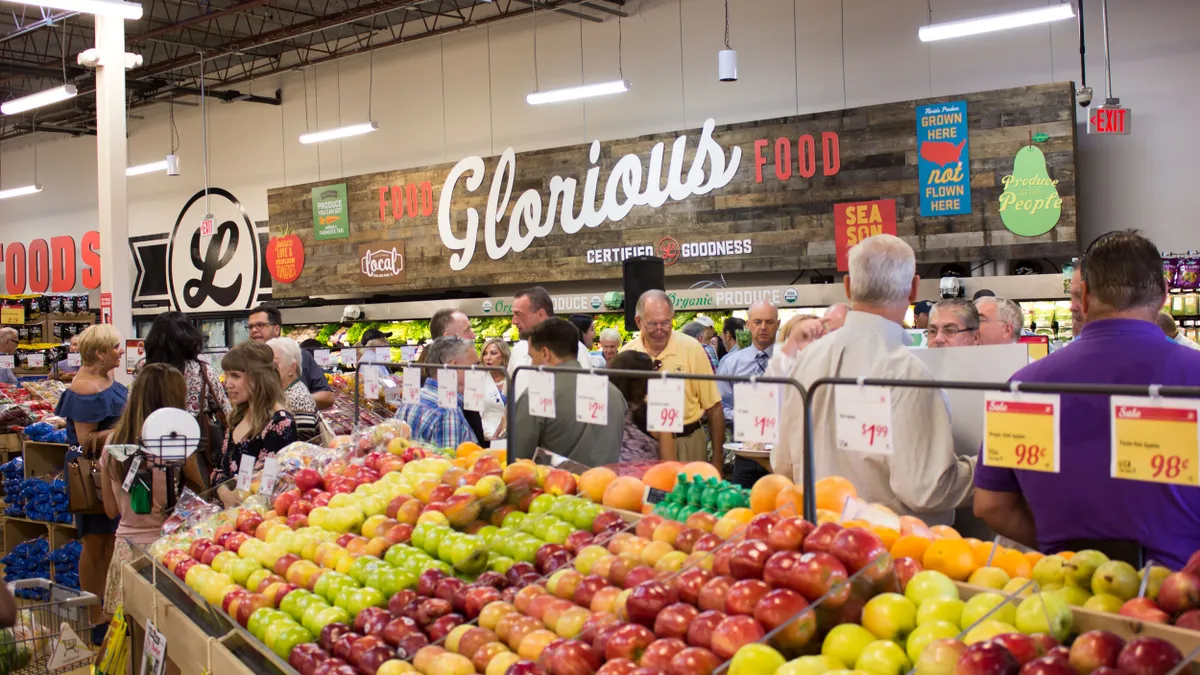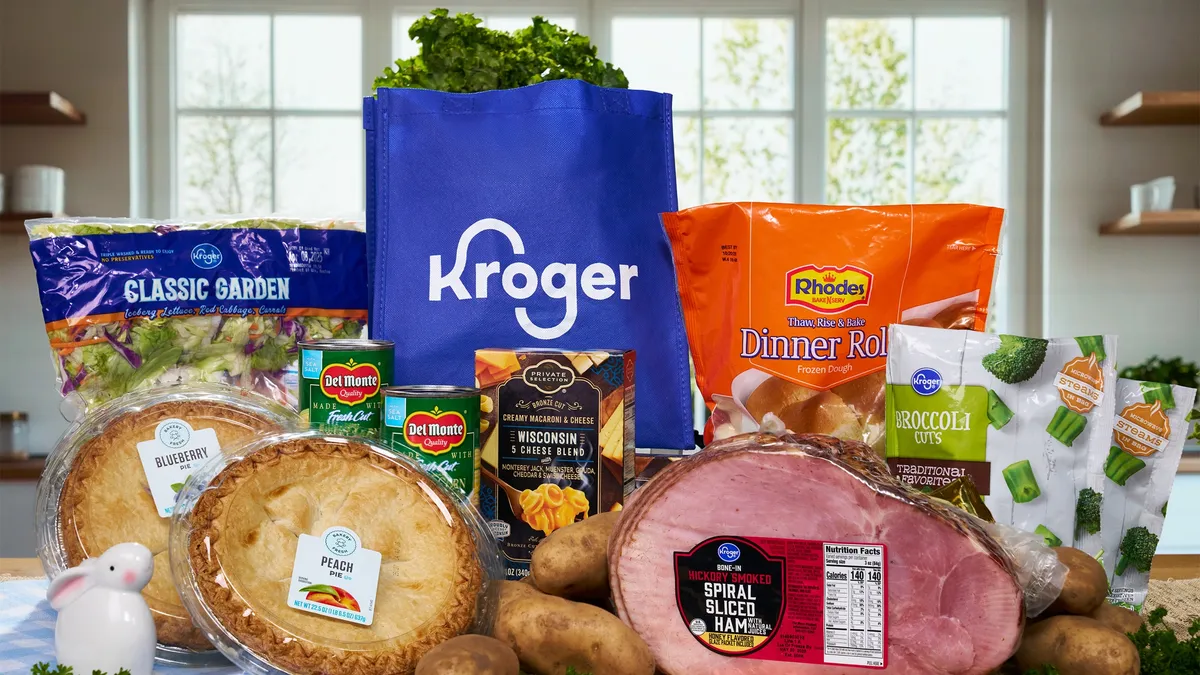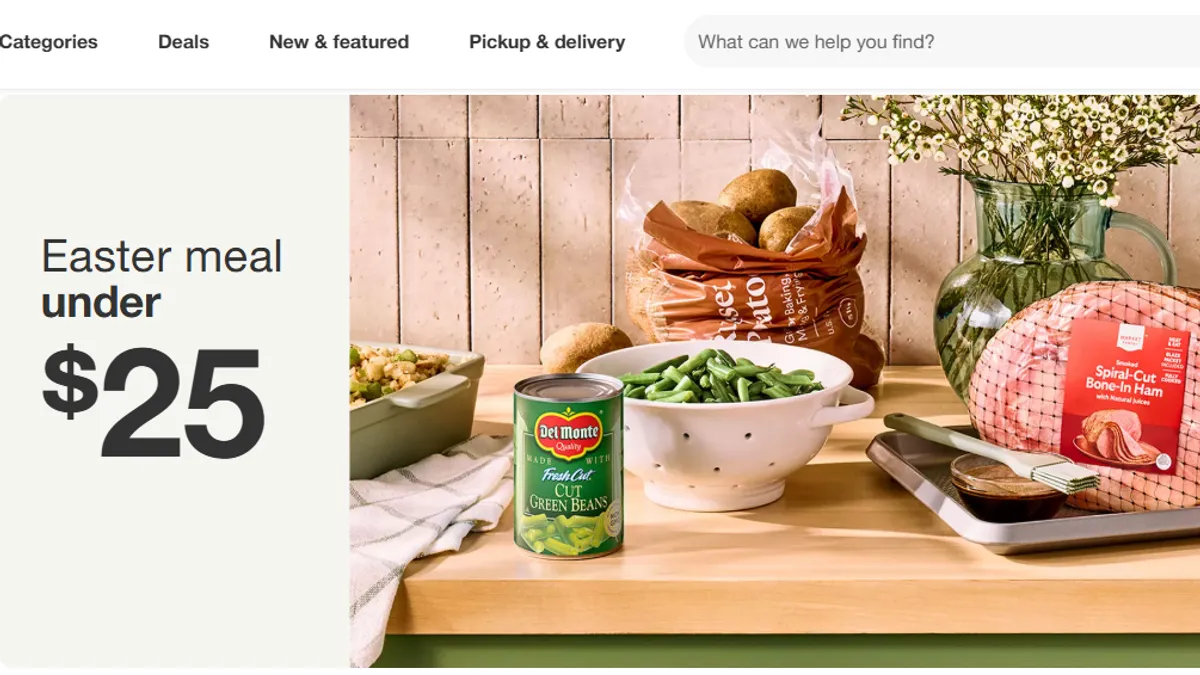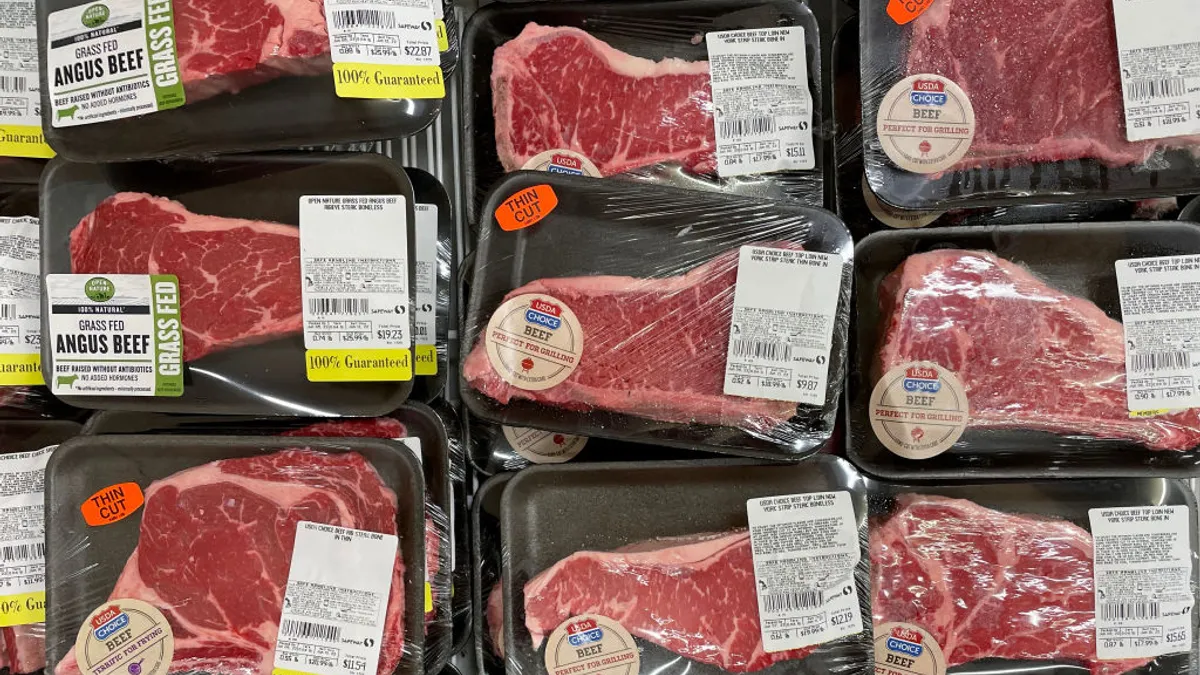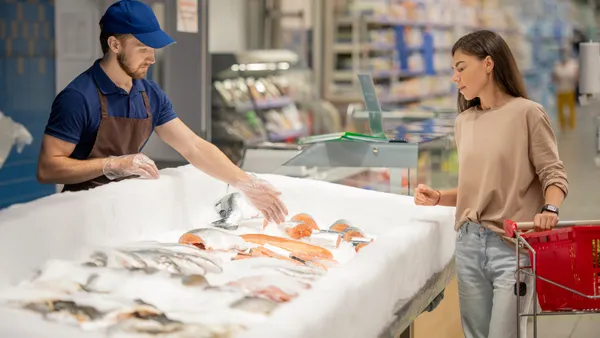Florida has been one of the fastest-growing grocery markets in the U.S. over the past few years. So surely the sudden availability of 20 Lucky’s Market stores and more than half as many under development in key locations across the state would draw significant interest from competitors?
Don’t bet on it, experts say.
“I’d be surprised if half of those locations become supermarkets,” Phil Lempert, industry consultant and founder of SupermarketGuru.com, told Grocery Dive.
At around 30,000 square feet, Lucky’s stores are too big for discounter Aldi and too small for Whole Foods and Sunshine State stalwart Publix. Specialty competitors like Sprouts Farmers Market, The Fresh Market and Earth Fare would seem the most logical choice — and Sprouts and Earth Fare have numerous stores under development in the state. But these specialty chains, which sprang up in the wake of Whole Foods’ success and then siphoned off many of that chain’s customers, are struggling, Lempert said.
Sprouts has said it wants to pump the brakes on its expansion plans, while The Fresh Market, which operates 46 stores in Florida, has retrenched after coming off the public market and closing dozens of locations between 2016 and 2018.
Earth Fare, meanwhile, plans to double its store count in Florida, CEO Frank Scorpentini told the South Florida Business Journal. But there are signs of distress. Earth Fare closed five stores earlier this month, including one in Florida. The chain is also rumored to be seeking buyers.
“These kind of specialty stores were unique 10 years ago,” Lempert said. “They’re not unique now. You can go into any ShopRite, any Safeway and find the same stuff for cheaper.”
Cindy Schooler, senior vice president with SRS Real Estate Partners in Tampa, said Lucky’s, Earth Fare and Sprouts all crashed into Florida around the same time, and that Lucky's pullback could signal a need to temper growth in the region.
“All these specialty grocers came in pretty hot and heavy, and I think maybe they just did a little bit too much too fast,” she told Grocery Dive.
Schooler said Lucky's sudden exit after a short stint in Florida leaves numerous landlords holding unfulfilled multi-year deals. One Lucky's store in Orlando that opened just six months ago was an anchor location that now has to be back-filled, she said. These management companies may be reluctant to rent their properties to another grocer, Schooler said.
At the very least, it means they'll more closely scrutinize a company's financials and write in stricter protections around termination rights, defaults and guarantees.
“You’re not as generous because you don’t want to get burned twice,” Schooler said.
Many of Lucky's stores were also custom-built for the retailer, Schooler said, which narrows the field of prospective tenants.
Still, Schooler said Lucky’s stores are in “A locations” that should entice grocers. She named Earth Fare, Sprouts, Walmart’s Neighborhood Market and Publix Greenwise as potential buyers, and said non-grocery discount stores and gyms could also snap up locations. She predicted around 15 of the 20 stores would get new tenants within the next 90 days, while others would sit longer.
"All these specialty grocers came in pretty hot and heavy, and I think maybe they just did a little bit too much too fast."

Cindy Schooler
Senior vice president, SRS Real Estate Partners
With its rare combination of baby boomers and millennials in plentiful supply, Florida has very attractive demographics for grocers, said Neil Stern, senior partner with McMillanDoolittle. In addition to specialty chain growth, Aldi and Walmart have increased their store count, particularly in the population-dense central and south regions. Last year, Kroger and Ocado announced they would build an automated e-commerce fulfillment center in Groveland, just west of Orlando.
But the state has seen its share of chains come and go over the years, including Albertsons, Food Lion and Jewel-Osco, thanks primarily to Publix’s firm grip on the state.
“It is a tougher market than it looks,” Stern told Grocery Dive. “And the main reason for that is Publix. They are really good, and they’re deceptively good.”
For Lucky’s, the perils of expanding too quickly and too broadly have become all too clear of late. The chain confirmed via social media on Wednesday it plans to keep just seven of its 39 stores operating, including one Florida location in West Melbourne. The other stores that will continue to operate are located in Fort Collins and North Boulder, Colorado; Traverse City, Michigan; Columbia, Missouri; and Cleveland and Columbus, Ohio.
The closures came a little more than a month after Kroger announced it would end its strategic investment in Lucky’s and prompted an outpouring of grief and affection from customers on social media.
“We appreciate the many shopping trips you put in and pints of beer you drank in our stores,” the note from the Lucky’s read.
Could Lucky’s reignite its growth some day? Stern doesn’t think it’ll be easy. He said the company simplified its footprint, but its few remaining stores are still scattered across the country, making operational efficiencies hard to achieve.
“It would make sense to retrench to your core stores in Colorado. But keeping so many locations open across the country, that’s a little tougher to understand.”



